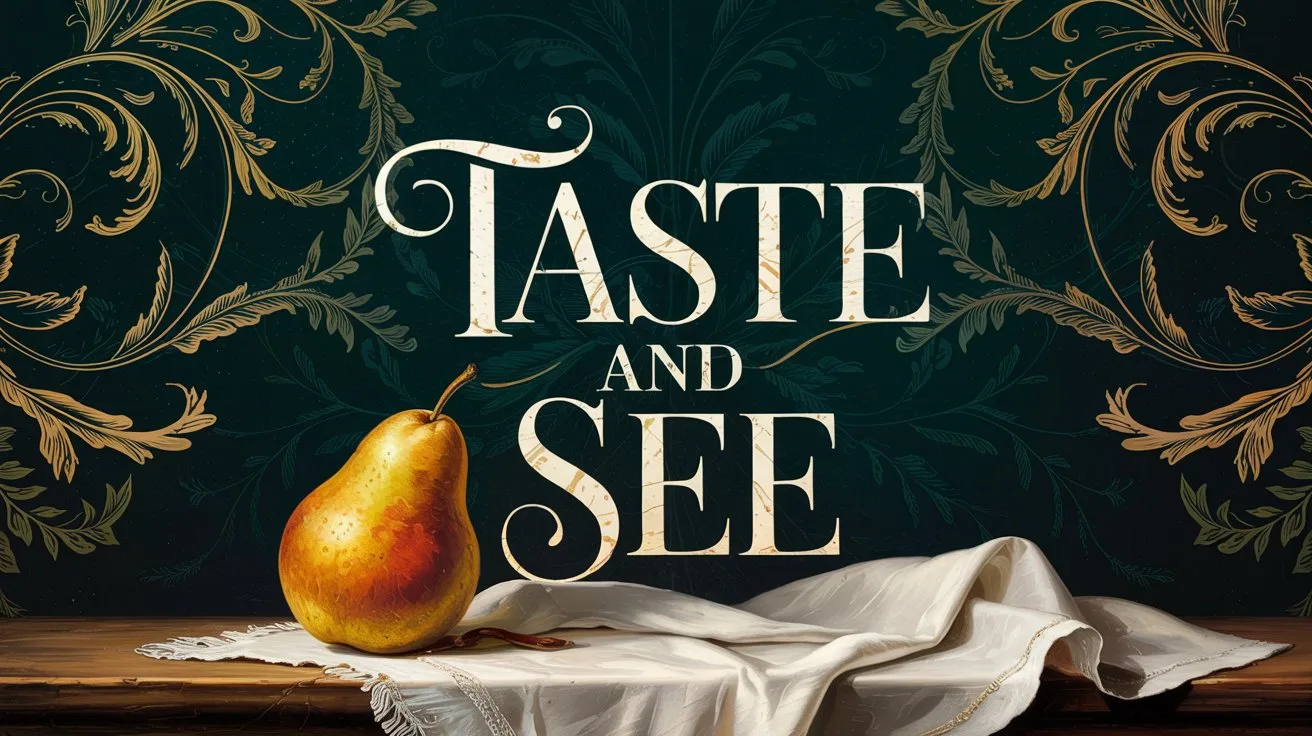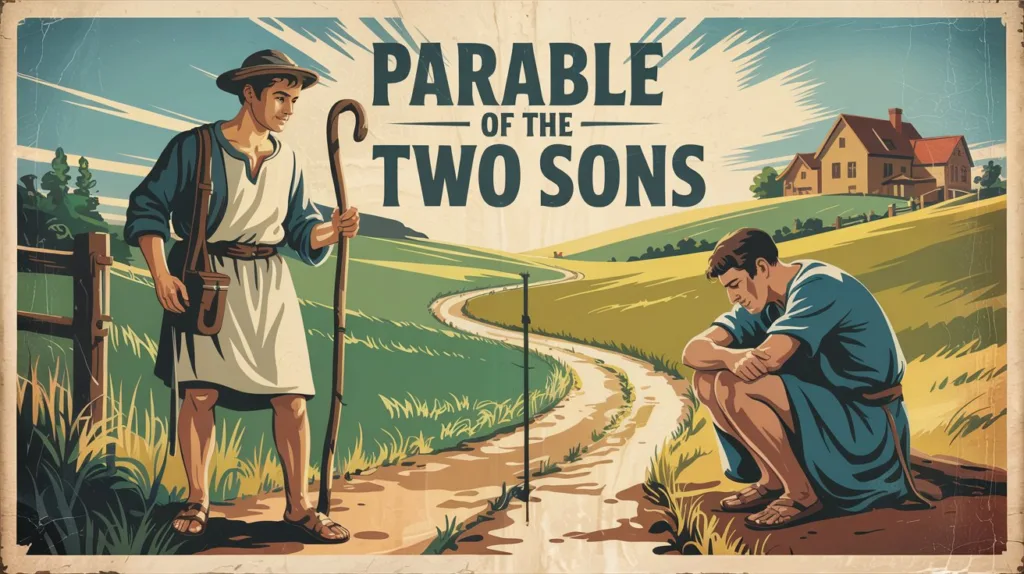The phrase “Taste and see that the LORD is good” comes from Psalm 34:8, and it’s more than poetic—it’s a call to experience the goodness of God firsthand. David, in the midst of personal crisis and danger, penned this psalm not as theory but as testimony.
Oh, taste and see that the LORD is good; Blessed is the man who trusts in Him! (Psalm 34:8)
This phrase invites us to move beyond intellectual assent or tradition into intimate fellowship with the Lord, where we taste, see, and therefore trust.
The Context of Psalm 34
David wrote this psalm “when he changed his behavior before Abimelech, who drove him away, and he departed” (Psalm 34:1). He was running for his life from Saul and had to feign madness before a Philistine king to survive (1 Samuel 21:10–15). Amid such chaos, David still praises God.
The call to “taste and see” comes after verses like:
I sought the LORD, and He heard me, And delivered me from all my fears. (Psalm 34:4)
This sets the foundation. David is saying: I cried, He answered. I feared, He delivered. I lacked, He provided. Now you (emphasis added): taste and see.
What Does “Taste” Mean?
The Hebrew word for “taste” is טָעַם (ta’am): it means to perceive or experience something by tasting it, not just knowing about it. It’s the same word used when Jonathan “tasted” honey and his eyes brightened (1 Samuel 14:29). In Scripture, taste is sensory, active, and unmistakable.
You cannot “taste” something by standing at a distance. This is a call to participation in the presence and promises of God, not just observation.
In spiritual terms, this is mirrored in the New Testament when Peter says:
…if indeed you have tasted that the Lord is gracious. (1 Peter 2:3)
Peter, quoting Psalm 34, uses this to affirm newborn babes in Christ growing by the milk of the Word. The taste is the personal confirmation of the goodness of the Lord through salvation, and the ongoing growth of sanctification.
What Does “See” Mean?
The Hebrew word רָאָה (ra’ah) means to see, perceive, or understand. It’s used throughout Scripture to refer to both physical sight and spiritual insight. So “taste and see” together form a parallelism: one speaks to personal experience, the other to spiritual perception. Together they say: Experience God for yourself and discern His goodness. This is not unique to Psalm 34 as we read in Psalm 27:
I would have lost heart, unless I had believed That I would see the goodness of the LORD In the land of the living. (Psalm 27:13)
Seeing the Lord’s goodness is a present hope, not just an eternal one.
Who Is the Invitation For?
Psalm 34:9–10 gives the answer:
Oh, fear the LORD, you His saints! There is no want to those who fear Him. The young lions lack and suffer hunger; But those who seek the LORD shall not lack any good thing.
The invitation is for the saints, the ones who seek Him, the ones who trust and fear Him. This promise is not for the indifferent nor the casual inquirers. This is for those who come to God hungry, knowing their need. It is exactly what Jesus taught in Matthew 5:6:
Blessed are those who hunger and thirst for righteousness, For they shall be filled.
Jesus, the Fulfillment of “Taste and See”
In the New Covenant, the fulfillment of this invitation is found in the person of Christ.
Then Jesus said to them, “Most assuredly, I say to you, unless you eat the flesh of the Son of Man and drink His blood, you have no life in you.” (John 6:53)
This is not literal cannibalism; it is the full spiritual internalization of who He is. To receive Him by faith is to partake of Him.
As the living Father sent Me, and I live because of the Father, so he who feeds on Me will live because of Me. (John 6:57)
This is the climax of the invitation: Taste the Bread of Life. Drink the Living Water. Experience the Lord.
My Final Thoughts
“Taste and see” is not for the religious, the lukewarm, or the self-sufficient. It is for the hungry, the humble, and the brokenhearted. It is a deeply personal call (God invites you not to a ritual, not to a system, but to Himself). In a world filled with empty religion and surface-level Christianity, this is the dividing line. If you have tasted of His mercy, you will never be satisfied with anything less. If you have seen His goodness, you cannot unknow it. And once you have trusted in Him, you will know: Blessed is the man who trusts in Him.
So let us echo David’s invitation in this generation: Oh, taste and see that the LORD is good.





 Get the book that teaches you how to evangelize and disarm doctrines from every single major cult group today.
Get the book that teaches you how to evangelize and disarm doctrines from every single major cult group today.